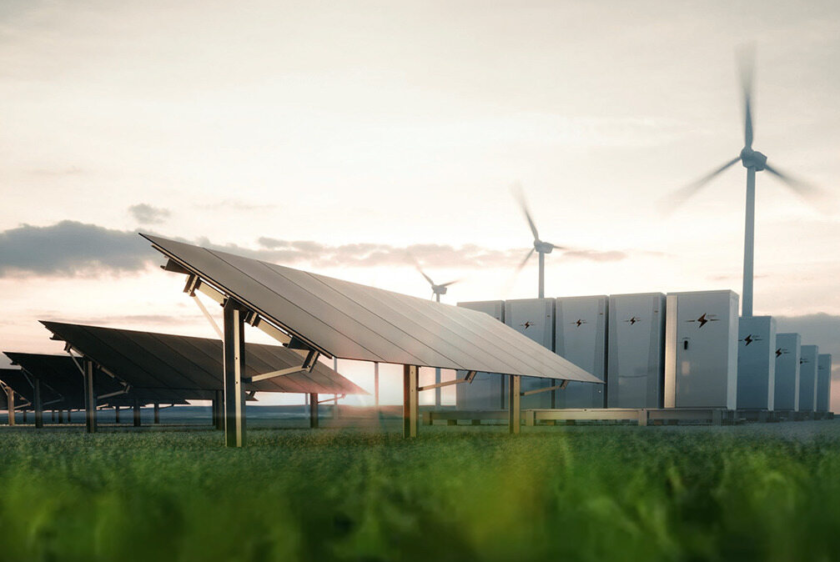In today’s rapidly evolving energy landscape, commercial and industrial energy storage has become a cornerstone of sustainable power management.
As businesses increasingly shift toward renewable energy sources like solar and wind, the need for efficient energy storage solutions has never been greater.
This comprehensive guide explores the latest advancements, benefits, and key differences between commercial battery storage and industrial power storage, while mapping all related keywords for better SEO optimization.
What is Commercial and Industrial Energy Storage?
Commercial and industrial energy storage refers to large-scale systems designed to store excess electricity generated from renewable sources or the grid.
These systems help businesses optimize energy usage, reduce costs, and enhance sustainability.
Key Components of Energy Storage Systems
- ESS Battery (Energy Storage System Battery) – Typically lithium-ion, used for high-capacity storage.
- Inverters & Converters – Manage energy flow between storage and the grid.
- Control Systems – Ensure efficient charging/discharging based on demand.
Difference Between Commercial and Industrial Energy Storage
While both commercial energy storage systems and industrial power storage serve similar purposes, they differ in scale, application, and technology.
| Feature | Commercial Energy Storage | Industrial Energy Storage |
|---|---|---|
| Scale | Medium-sized (e.g., offices, retail) | Large-scale (factories, manufacturing) |
| Primary Use | Peak shaving, backup power | Heavy-load management, grid stabilization |
| Battery Type | Lithium-ion, flow batteries | High-capacity lithium-ion, pumped hydro |
| Cost | 300–600 per kWh | 200–500 per kWh (bulk discounts) |
Three Main Types of Energy Storage Systems
Understanding the different energy storage solutions helps businesses choose the right system.
1. Battery Energy Storage (BESS—Battery Energy Storage System)
- Uses ESS battery technology (lithium-ion, lead-acid).
- Ideal for commercial battery storage due to scalability.
- Supports solar integration for off-grid solutions.
2. Flywheel Energy Storage
- Stores energy as rotational kinetic energy.
- Best for short-duration, high-power applications.
3. Pumped Hydro Storage
- Uses gravitational energy by pumping water uphill.
- Mostly for industrial power storage due to massive infrastructure needs.
How Much Does Commercial Energy Storage Cost?
The cost of commercial and industrial energy storage varies based on capacity, technology, and incentives.
| System Type | Cost per kWh (2025 Estimates) |
|---|---|
| Lithium-ion ESS Battery | 300–600 |
| Flow Batteries | 500–800 |
| Industrial-Scale Storage | 200–500 (bulk pricing) |
Factors Affecting Cost:
- Government incentives (tax credits, rebates).
- Installation complexity.
- Battery lifespan and maintenance.
Benefits of Commercial and Industrial Energy Storage
Investing in energy storage solutions provides multiple advantages:
1. Energy Cost Savings
- Peak shaving reduces demand charges.
- Time-of-use optimization lowers electricity bills.
2. Grid Independence & Backup Power
- Ensures uninterrupted operations during outages.
- Reduces reliance on unstable grid power.
3. Sustainability & Carbon Reduction
- Supports renewable integration (solar + storage).
- Lowers carbon footprint for ESG compliance.
4. Revenue Generation
- Participation in demand response programs.
- Selling stored energy back to the grid.
Commercial vs. Domestic Energy Storage: Key Differences
While domestic energy storage focuses on residential needs, commercial and industrial energy storage is built for higher demand.
| Aspect | Domestic Energy Storage | Commercial & Industrial Energy Storage |
|---|---|---|
| Capacity | 5 – 20 kWh | 50 kWh – 10 MWh+ |
| Primary Use | Home backup, solar storage | Load management, cost savings |
| Cost | 5,000–20,000 | 50,000–5M+ |
Future Trends in Commercial and Industrial Energy Storage (2025 & Beyond)
1. AI-Driven Energy Management
- Smart algorithms optimize charging/discharging cycles.
2. Second-Life EV Batteries for Storage
- Repurposed EV batteries reduce costs.
3. Solid-State Batteries
- Higher energy density, longer lifespan.
4. Microgrid Integration
- Businesses create self-sufficient energy networks.
Conclusion: Why Invest in Commercial and Industrial Energy Storage?
The shift toward commercial and industrial energy storage is accelerating as businesses seek cost-effective, sustainable, and resilient power solutions.
Whether through commercial battery storage or industrial power storage, companies can achieve:
✔ Lower energy costs
✔ Enhanced grid stability
✔ Reduced carbon emissions
✔ New revenue streams
Ready to explore the best energy storage solutions for your business?
📞 Contact Us Today for a Customized Consultation!





